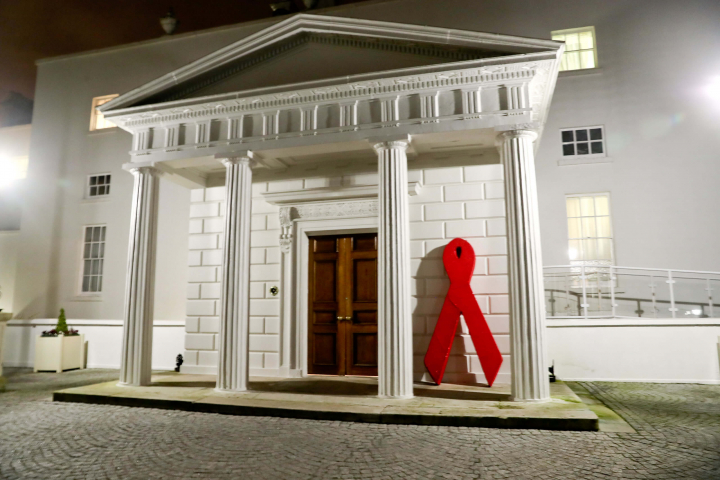Statement by President Michael D. Higgins World AIDS Day 2022
Date: Thu 1 Dec, 2022 | 10:14
“It is forty years since the first cases of HIV were diagnosed, and while it may be troubling to recall the moral and ethical atmosphere of society at that time forty years ago, it is necessary to give testimony to those who lived through the HIV and AIDS experience of that time. Those who suffered the most in the 1980s were those exposed not only to a prejudice born of misunderstanding of HIV and AIDS, but also to other forms of social oppression which were, and are, too often manifested in our society.
Our recent battle with the Covid-19 pandemic, along with multiple concurrent global crises, including the return of extreme hunger and famine in the Horn of Africa, and the illegal invasion of Ukraine by Russia, have the consequence of pushing the fight against HIV/AIDS further down the international agenda. It is essential that we keep the battle against HIV/AIDS on the agenda in line with the United Nations Sustainable Development Goal target of ending the disease by 2030.
As we look back over the past four decades, it is clear that, in terms of living up to its duties to its citizens, the institutional and societal response in many countries was anything but adequate in those early years of HIV/AIDS. Great strides have been made thanks to the efforts of those campaigners and of campaigning organisations, activism often conducted in the face of ignorance and sometimes hostility. May I take this opportunity to acknowledge and pay tribute to those activists, as well as the researchers working at the frontiers of science, for their endeavours in this most important area of public health policy.
However, there remain many parts of the world where HIV/AIDS remains stigmatised, where a sense of shame is attached to having the illness, where access to treatment is poor.
It is truly sobering to recall that over 40 million people have died from AIDS-related illnesses since the beginning of the epidemic, and that 650,000 people died of such illnesses in 2021. While this represents a 52 percent decrease from 1.4 million in 2010, and a 68 percent decrease from the peak of 2 million in 2004, these 650,000 people have, for the most part, suffered a preventable death, lives cut tragically short. Sub-Saharan Africa, home to two-thirds of all people living with HIV globally, remains the hardest hit region in the world.
At global level there is much which needs to be done, and approached with urgency. Access to treatment remains the core challenge, as only approximately half of those with HIV have access to anti-retroviral drugs which have enabled those living with the virus to live a normal lifespan. Nothing less than universal health coverage and access to quality healthcare, including universal access to sexual and reproductive healthcare services, are necessary if there is to be a possibility of meeting our goal of eliminating the disease by 2030
Now is the time to look forward to all that which must still be achieved, both in our own society in Ireland, and in countries around the world to realise the possibility of an AIDS-free generation and to ensure that those living with HIV may be able to live their lives without stigma, fear or discrimination. We are also required to create the consciousness for more inclusive and just societies.
Let us come together, on World AIDS Day, to deliver a response which eliminates inequalities based on gender, sexuality and race; one which raises the dignity of all people, and meets the demands of social justice; one which will be truly capable of eliminating HIV/AIDS and ensuring that those who live with HIV can live lives free of stigma, prejudice and discrimination.
Beir beannacht
Michael D. Higgins
Uachtarán na hÉireann
President of Ireland”

